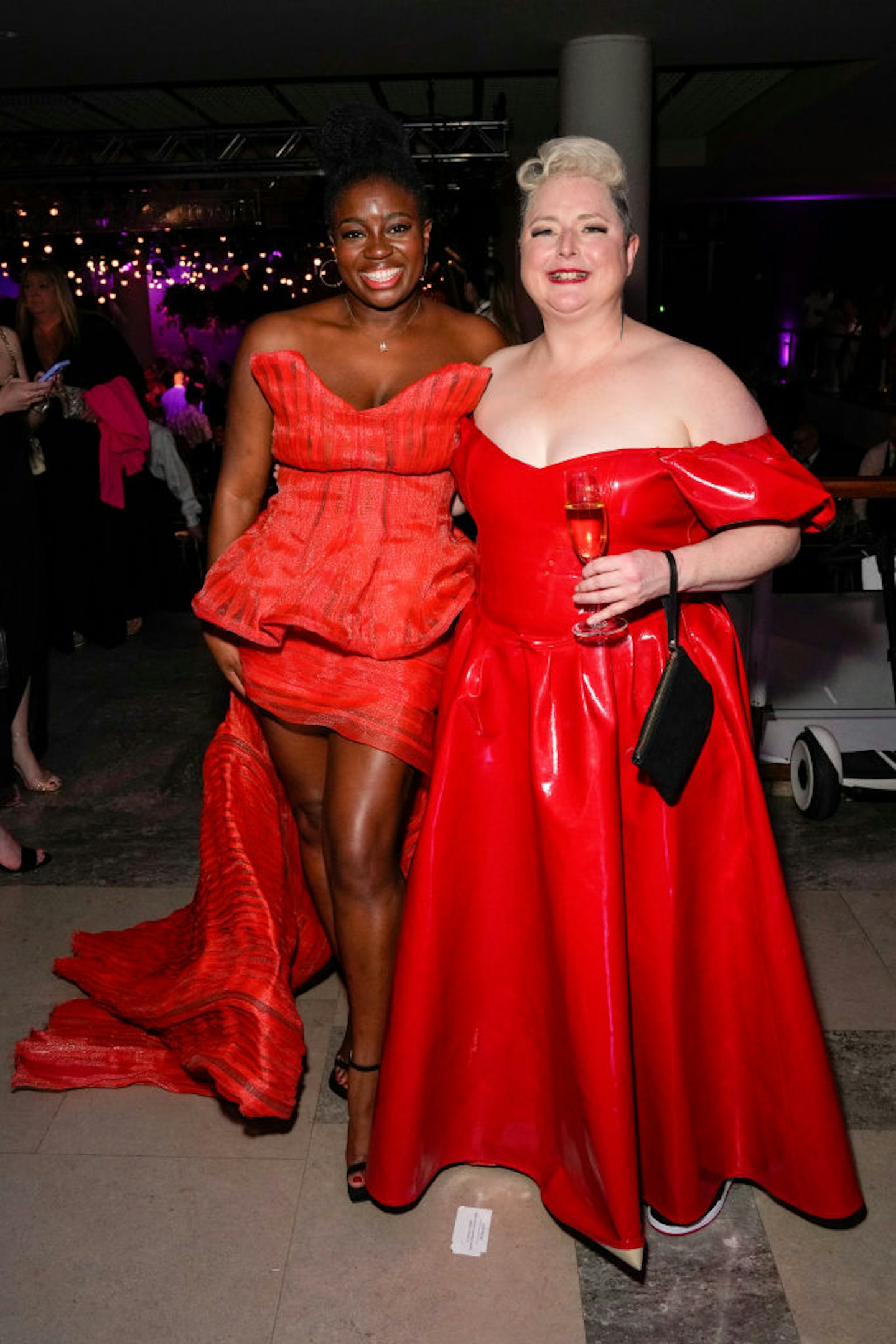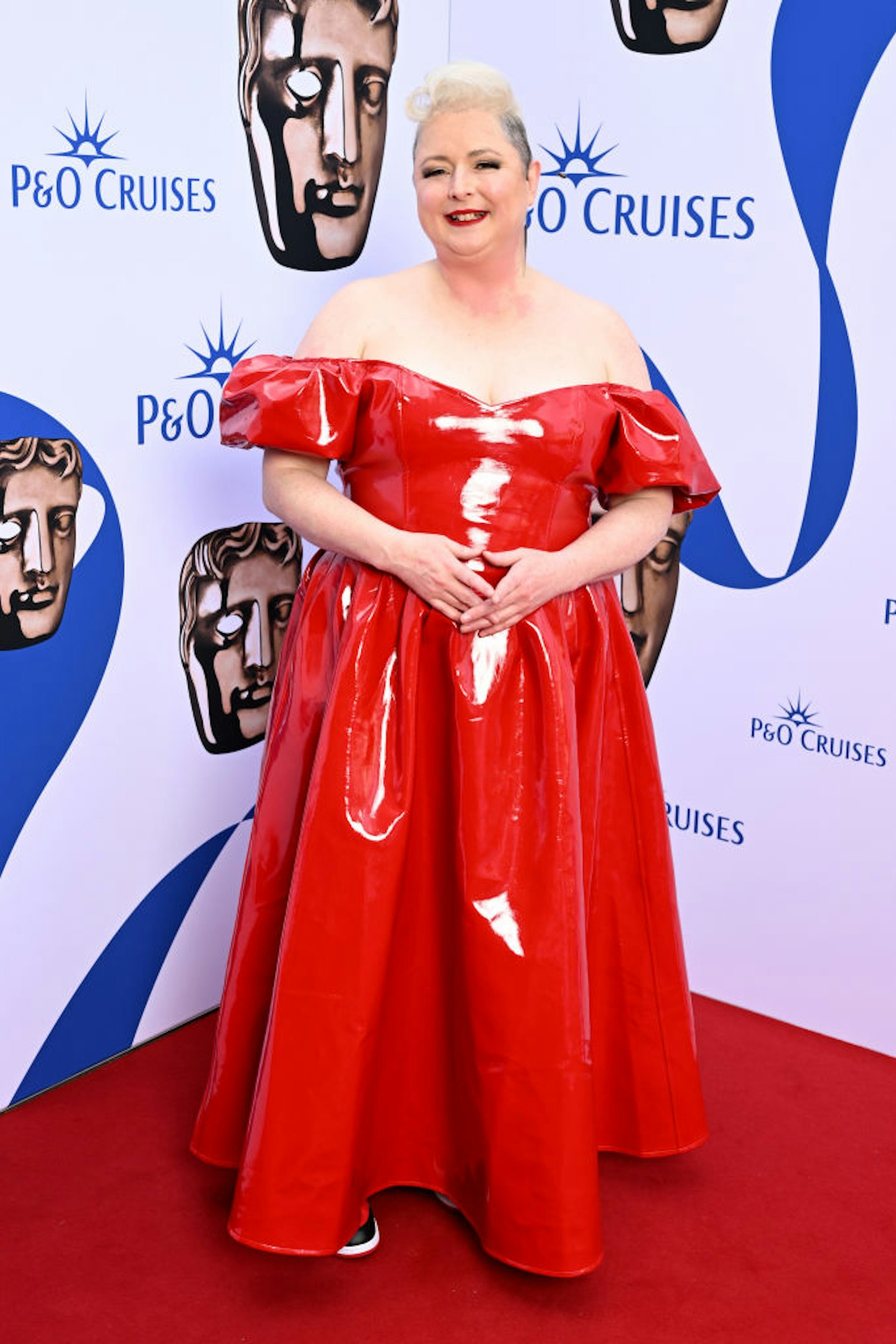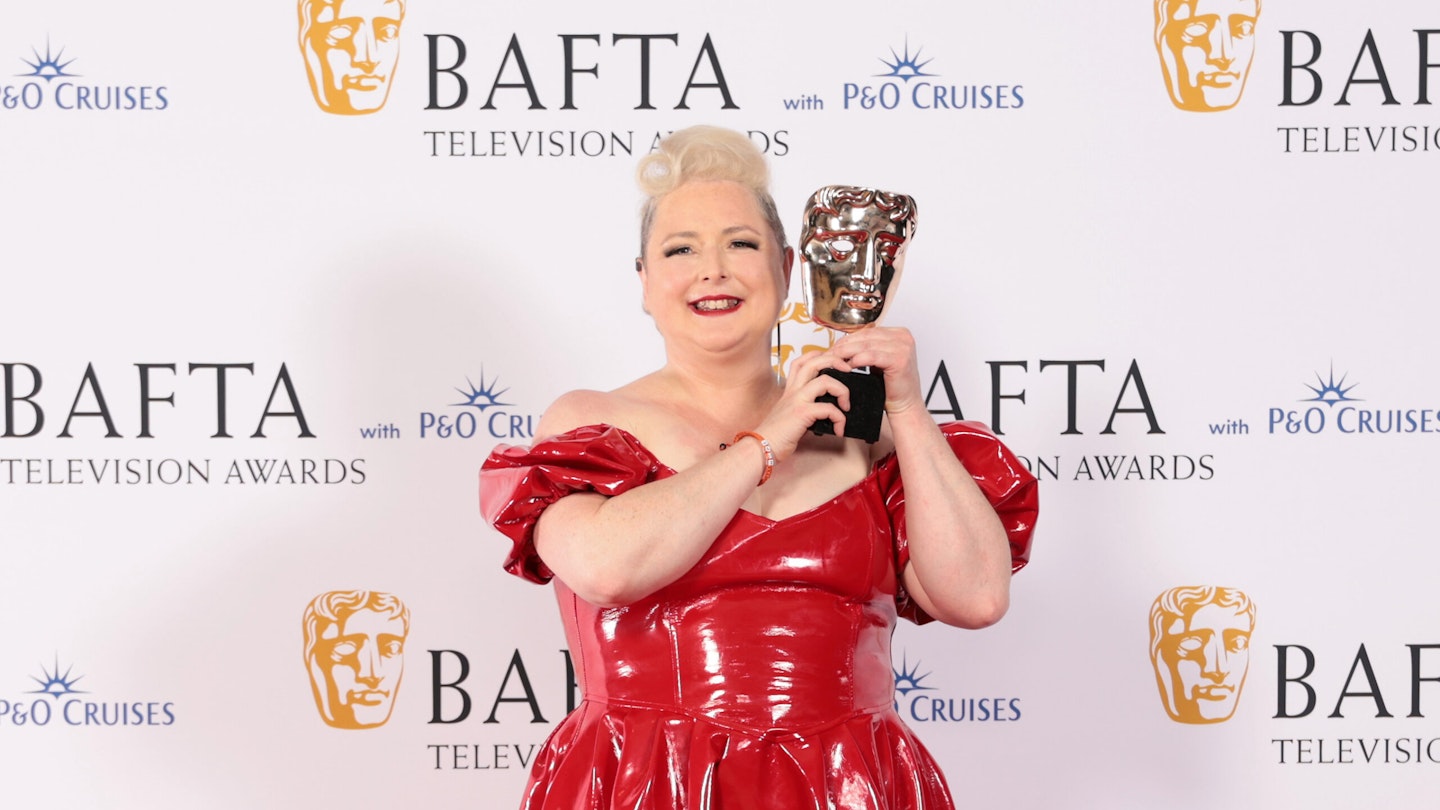When Derry Girls star Siobhán McSweeney stepped onto the BAFTA TV Awards red carpet last night, her dress made a statement. Not just because of her stunning gown’s shocking scarlet hue or high-shine patent vinyl fabric. Or even the fact that she elected to team it with a comfy pair of Nike Air Jordan trainers. But because she turned down a swathe of high fashion labels desperate to dress her in favour of one which champions size inclusivity on every occasion – not just when star-studded events and best dressed lists are concerned.
“I had lots of offers of amazing designers who wanted to dress me, but I refused to wear anything by a designer who would not design for my body if it wasn’t BAFTA-nominated,” she explained to a reporter from Irish broadcaster RTÉ, speaking just moments before her win for best female performance in a comedy programme. “It’s the same fantastic and pretty average body whether it’s BAFTA nominated or not. I’d prefer to support people who dress for people like me – the very average woman – all the time.”

The dress she chose was by US label Fashion Brand Company. Established in 2018 by artist Penelope Gazin in her Los Angeles apartment, the ethically minded label is described as ‘100% woman-owned, independent, direct-to-consumer slow fashion’ which crucially, places diversity in sizing and fit at the top of its agenda. Within the permanent collection, sizes span XS – 5XL, with certain pieces extending beyond from XXS – 7XL, with the brand stating, “We are always improving the fit and sizing of our clothes, so they look amazing on as many people as possible.”
McSweeney’s decision to forgo a custom-made designer creation in favour of a little-known size-inclusive label raises an important point – one which has been raging for some time – why is red carpet dressing still such a minefield for those who don’t prescribe to the industry’s restrictive sample size bracket?

It seems archaic – not to mention plain ignorant – to expect Hollywood’s collective A-list to conform to one very narrow body type – especially at a time when diversity, inclusion and representation has never been such a hot button topic. Yet, sample sizes for Oscar-worthy couture gowns typically run from a size US 0-4 (the equivalent to UK 4-8), meaning it’s slim pickings for stylists looking to borrow for stars who don’t conform.
Siobhán McSweeney certainly isn’t alone in her frustrations. Top model Ashley Graham once confessed in an interview with The Cut that she couldn’t attend the 2016 Met Gala because she “couldn’t get a designer to dress [her]”, while in a separate interview with E! she explained; “Trying to find a dress for the Oscars – girls my size – I mean, it has been a whole job in itself.” At a recent film festival, Citadel star Priyanka Chopra told reporters she cried after being body-shamed and told she “wasn’t sample sized”, while Melissa McCarthy’s long-time frustrations with red carpet dressing led the actor, who studied fashion design in college, to launch her own fashion line with couture dressmaker Daniella Pearl. Stars including Bryce Dallas Howard and Rachel Bloom have previously resorted to purchasing red carpet attire after struggling with the limited options available to loan, while singer Bebe Rexha, actor Leslie Jones and director Ava DuVernay have also taken to social media to vent about the red carpet’s sizeist issue.
Several designers, too, have weighed in on the issue. Red carpet regular Christian Siriano is among those vocal about the need to revolutionise outdated industry ideals – a belief which has scored him legions of A-list fans from Lady Gaga to Cardi B and Rihanna to Oprah – while gender-fluid American-British designer Harris Reed unveiled his debut collection for storied French fashion house Nina Ricci in March with the message that these were clothes “for everyone”.
Certainly, in recent years we have witnessed a shift in brands pushing the narrative of body diversity with size inclusivity increasingly visible in campaigns, collections and on catwalks. But over the course of the last year, the fashion industry has come under fire for a reversal of representation and turning its back on the curve models it had begun to invite onto their runways, begging the question: was it all just ‘body positive’ lip service? A tokenistic trend over lasting change?
The fashion industry would certainly like you to believe that it’s changed for the better. But according to Siobhán McSweeney, the red carpet’s size expectation remains a big problem.
